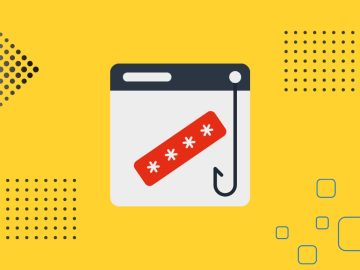Learn how to sue companies under GDPR for data misuse. Understand your rights, file complaints, and claim compensation for privacy violations.
Under the General Data Protection Regulation (GDPR), individuals have the right to sue and seek compensation if their personal data has been mishandled by a company. This comprehensive guide outlines the steps to take legal action against organizations that violate your data protection rights.
Understanding Your Rights Under GDPR
The GDPR, implemented in 2018, empowers individuals to control how their data is used and processed. Article 82 of the GDPR specifically provides individuals with the right to receive compensation for material or non-material damage resulting from a company’s infringement of the regulation.
Steps to Take Before Pursuing Legal Action
- Contact the Organization: If you believe your data has been mishandled, first reach out to the company responsible. Clearly outline your concerns and request information about how your data has been used or shared.
- Lodge a Complaint with a Data Protection Authority (DPA): If the organization’s response is unsatisfactory, you can file a complaint with your national DPA. They are obligated to investigate and inform you of the progress or outcome within three months.
- Gather Evidence: Document all communications with the organization and the DPA. Collect any evidence that supports your claim, such as emails, letters, or records of unauthorized data disclosures.
Initiating Legal Proceedings
If the issue remains unresolved, you may consider taking legal action:
- Fill in the Complaint Form: Before submitting your complaint, review the Data Protection Notice and the complaints checklist. You will need to fill out this form which will require details such as the EU institution, body, or agency involved, a description of the violation, what action you seek, the date of the incident, supporting evidence, and your personal information.
- File a Claim in Court: You can bring an action directly before a court against the company. The court will evaluate whether the GDPR has been violated and determine the appropriate compensation for any damage suffered.
- Follow Expert Advice: Consult with legal professionals specializing in GDPR and data protection laws to understand your rights, assess your case, and navigate the legal process effectively.
Recent Developments and Notable Cases
GDPR enforcement has led to significant fines and legal actions against companies:
- Meta Platforms: In May 2023, Meta was fined €1.2 billion for transferring the personal data of European users to the United States without adequate protection mechanisms.
- Uber: In August 2024, Uber faced a €290 million fine by the Dutch Data Protection Authority for improperly transferring European drivers’ data to the U.S., violating GDPR provisions.
- Facebook Data Breach: A German court ruled in November 2024 that users affected by a 2018-2019 Facebook data breach are eligible for compensation, recognizing loss of control over personal data as grounds for damages. A hacker had leaked the personal data of 533 million Facebook users.
Considerations Before Suing
Before taking legal action under GDPR, it’s essential to assess the impact of the data breach on your personal and financial well-being. If the breach has resulted in material damage, such as financial loss or identity theft, you may have a stronger compensation case. However, even if there is no direct financial harm, non-material damage, such as emotional distress or reputational harm, can also be grounds for a claim.
Legal proceedings can be both costly and time-consuming, making it crucial to understand the potential expenses and commitments involved. Court cases may take months or even years to resolve, and the financial burden of legal fees should be carefully considered before proceeding. Seeking professional legal advice can help you evaluate whether your case is strong enough to justify the effort and costs.
In some situations, alternative dispute resolution methods like mediation or arbitration may be viable options. These approaches can offer a faster and less expensive resolution compared to lengthy court proceedings. Exploring these alternatives before initiating a lawsuit could save time, money, and stress while still holding the company accountable for its GDPR violations.
Conclusion
Exercising your rights under the GDPR is important in holding organizations accountable for the misuse of personal data. By following the appropriate steps and seeking professional legal advice, you can navigate the process of claiming compensation effectively. Staying informed about recent cases and developments will further empower you to protect your data privacy rights.
Feature Image via PixaBay/Sergeitokmakov




